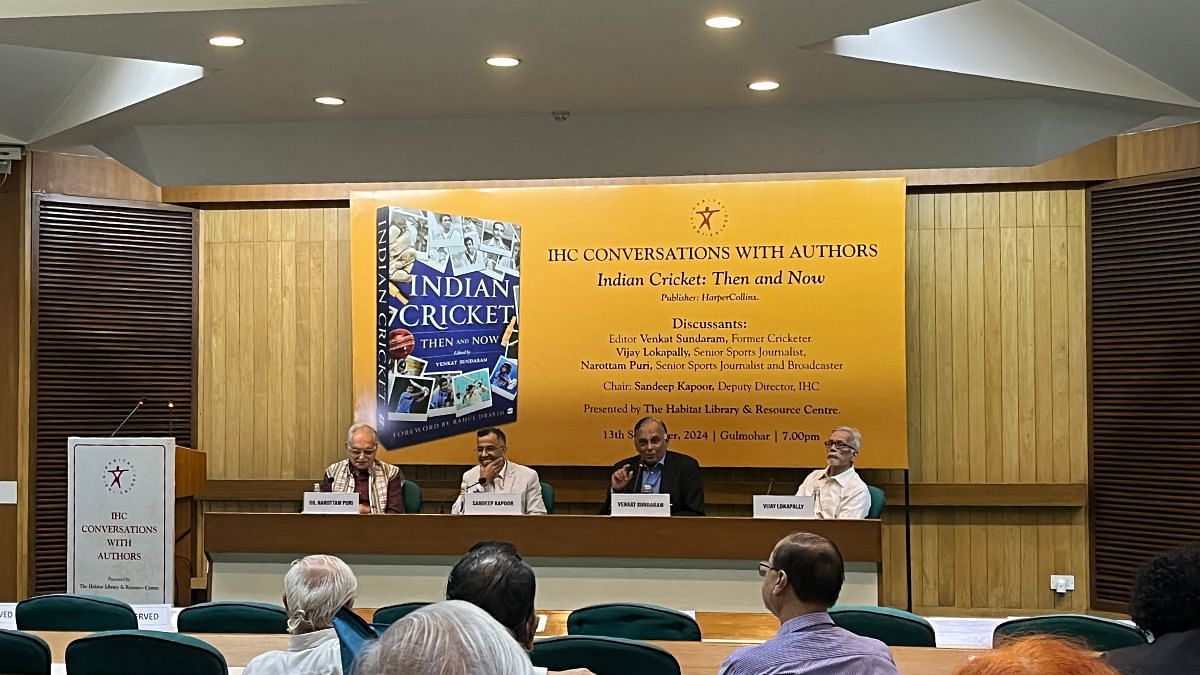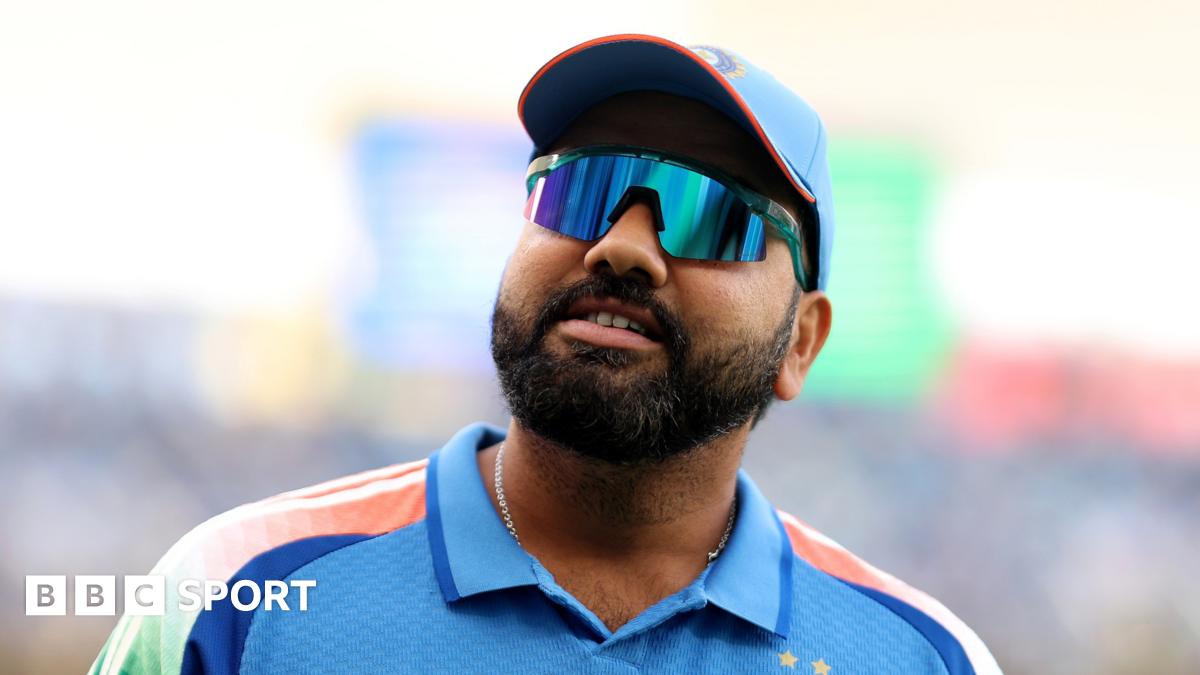A part of Tiger Pataudi’s legacy is glossed over—cricket commentary

New Delhi: Mansoor Ali Khan or Tiger Pataudi was the titular nawab of Pataudi, a cricketer par excellence, the husband of Sharmila Tagore, and the father of Saif Ali Khan. But there’s one part of his legacy that’s been glossed over. He was a fantastic commentator—quick on his feet, wickedly witty, and most importantly—he understood the value of brevity.
“He could say in one sentence what others would say in a paragraph. He could transport you. [commentary] requires a play of words,” said sports journalist Narottam Puri.
A book discussion on Indian Cricket: Then and Now, written by former cricketer Venkat Sundaram and published by HarperCollins India, was a cricket geek’s dream. Packed with anecdotes and tidbits that could only be collected through decades of observing, obsessively monitoring and sifting through the chaos of India’s favourite sport. Other than Puri and Sundaram, the panel had another long-time expert, Vijay Lokpally, who covered cricket for The Hindu.
While the book captures the evolution of cricket in India through epochal changes and essays by a slew of journalists and cricket observers, the discussion was more straightforward. It seemed to be a simple gathering of old colleagues, each a bottomless pit of cricket content.
Fateh Gaekwad, former cricketer and erstwhile Maharaja of Baroda, did radio commentary with a flask by his side. In case it needs to be said, it did not contain water. A certain manager of the Indian cricket team, at a particularly tense hour, read the Hanuman Chalisa in the locker room. A noted commentator refused to answer a question—“because he had already received his cheque.”
Also read: Cricket nostalgia, political nods — Sehwag & Tharoor’s jokes liven up cricket book launch
‘Unthinkable’ changes
The discussion was also an out-and-out testament to the value of cricket journalism, and the joy of writing and tracking a sport.
“I wanted to be a cricketer, but then I thought that the next best thing would be to write about cricket. I worked for the best magazine,” said Lokpally. “It took me to every cricket ground in the world. I got to learn about the game, and about people.”
It was the gilded age of cricket coverage.
“We had terrific access to players, which is unthinkable now,” the sports journalist added. They’d even eat lunch with the players. As expected, there were a couple of audible gasps at the prospect.
Apart from being able to indulge their fantasies as fans, cricket journalists, commentators and pundits were also key to keeping a certain momentum of the sport going. The medium was important––Venkat recalled jawans at Siachen tapping into radio shows, feverishly listening in, and waiting for their country’s fate to be decided on the sports field.
“We must understand the medium,” said Puri. “The value of pause, as we call it in broadcasting.” Essentially, the ability to keep mum when the crowd descends into cheers.
The trio belong to a certain elite cohort of pundits, but they did doff their hats to commentators of regional languages, acknowledging their contributions to popularising the sport. The cricket-watching demographic has radically changed. It’s no longer the sport of aristocrats, confined to a certain class.
Since the audience consisted of the cricket-obsessed, questions were long. Venkat joked that the quality of discussion had risen. The politics of cricket were delved into—racism faced by Indian players, the idea of cricket being a boys club, and of course—T20 being a dumbed-down version of the sport. There was also a customary lament about the decline of watching test cricket. As is the norm, the current generation was blamed.
But all is not lost. “No less than 40 journalists have applied for accreditation to report on the women’s World Cup,” said Lokpally. It’s due to be held next year in India. Just like the levels of access in the heyday of cricket journalism, this too was “unthinkable”.
(Edited by Theres Sudeep)
Related
India cricket: Rohit Sharma says Champions Trophy venue not an…
Captain Rohit Sharma has rejected suggestions that India playing all of their matches in Dubai gives them an advantage in the Champions Trophy.India, who face A
Cricket West Indies President Visits Peru | Windies Cricket news
Cricket West Indies President Visits Peru A Pivotal Step Towards International Collaboration and Cricket DevelopmentLIMA, Peru
‘Cricket is our religion’: Yograj Singh blasts Shama Mohamed over…
Former cricketer Yograj Singh has responded strongly to Congress spokesperson Shama Mohamed's controversial comments about Indian captain Rohit Sharma.Yograj
Champions Trophy semifinal: India vs Australia – all you need…
Who: India vs AustraliaWhat: ICC Champions Trophy 2025 semifinalWhere: Dubai International Cricket Stadium, Dubai, United Arab EmiratesWhen: Tuesday, March 4 at











